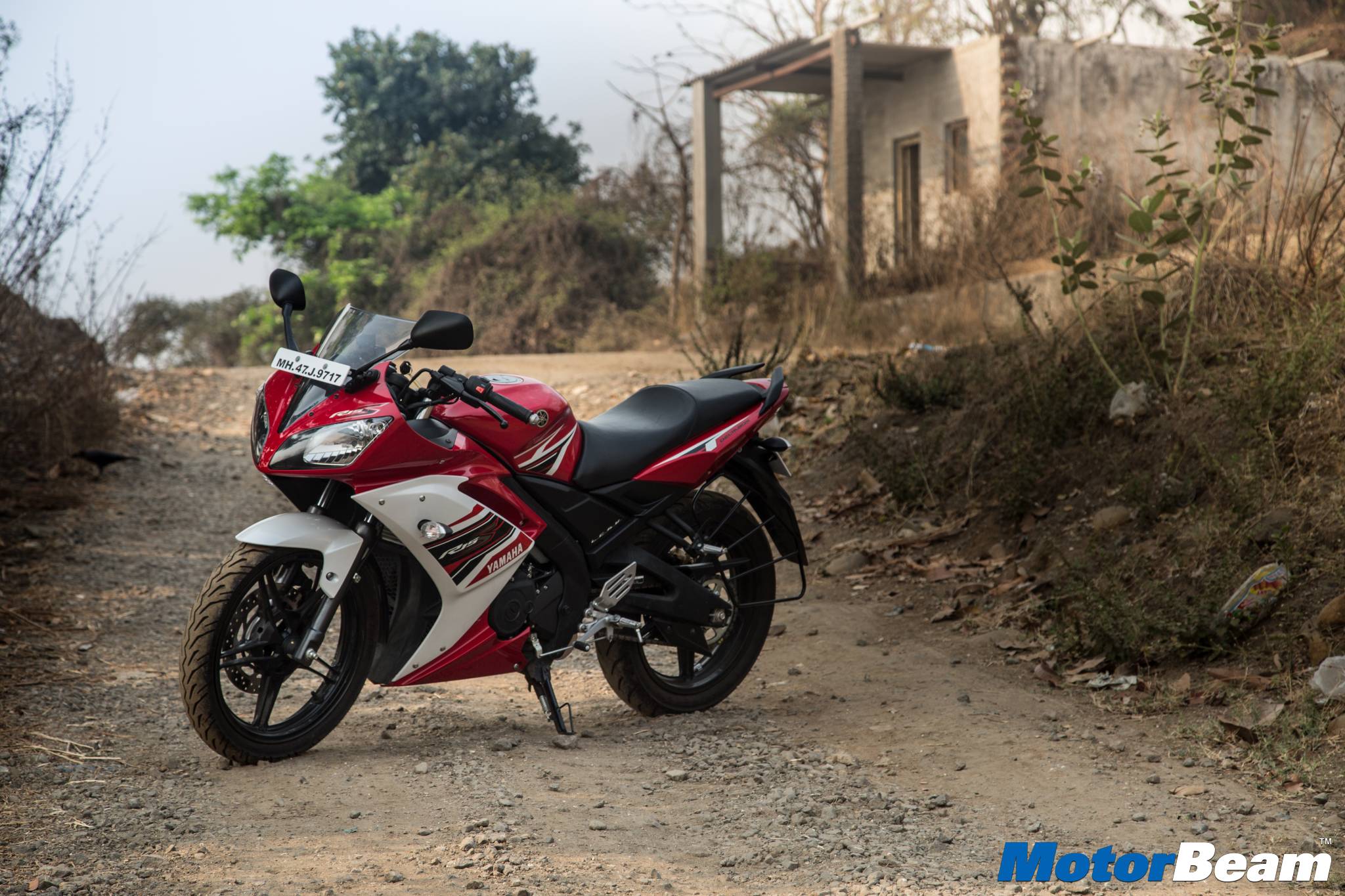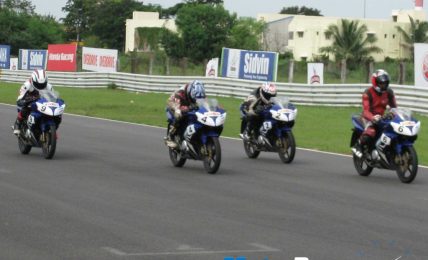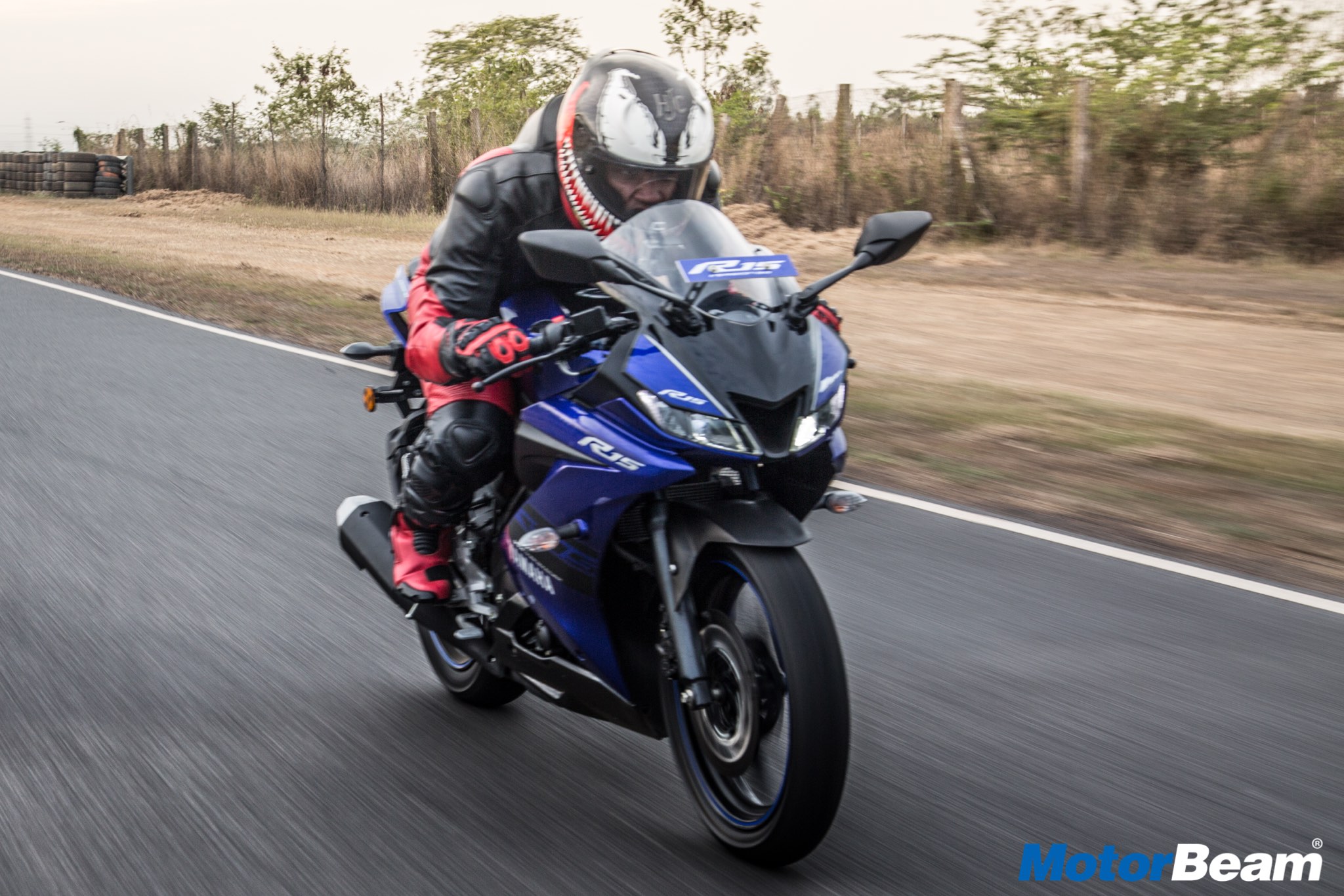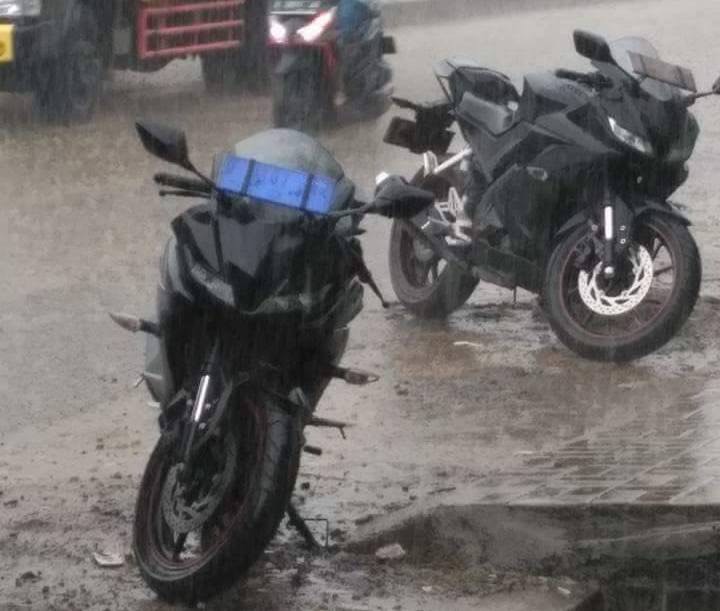
Yamaha R15-S Review
Bike Tested: 2016 Yamaha R15-S; Road Test No. 685
Price OTR Mumbai Rs. 1,40,390/-
The Yamaha R15-S is a hybrid of its previous two versions offering the best of both worlds
In times where it is a known fact that time travel in fact, is impossible, Yamaha Motor India seem to have had the breakthrough. It has a machine that will take you back to 2008 in less than 88 miles per hour that doesn’t even need the flux capacitor! The 2016 Yamaha YZF-R15, now called the R15-S, is an uncanny reincarnation of its eight year old ancestor. It seems the Japanese manufacturer has been nosing around too much in the smaller displacement market, and is focused on increasing their existing volumes rather than bringing some versatility to their portfolio. However, with the arrival of the R15-S, we couldn’t miss out on a mandatory test ride to see if it brings back any old memories.
The Yamaha YZF-R15 first went on sale in 2008 in India, which got several colour scheme updates until 2011 when the R15 V2.0 was launched. The new model underwent several visual updates, with the last one being in February 2016. Keeping in mind the critical response to the step-up seat of the V2.0 by a few, the R15-S was launched in September 2015 with the V2.0 still on sale.
A blast from the past – the Yamaha R15-S
Styling – The Yamaha R15-S is deceptively similar to its previous iterations. It carries design cues from both its earlier versions. For example, it uses the same fairing design as of the Version 1.0 while the exhaust muffler is taken from the later version. The rear fender looks similar to that of the one on V1.0, but has been redesigned to cover the wider rear tyre. Functional hardware such as the new aluminium swingarm has been retained from the V2.0.
The style cues are significantly different from each other
The fairing, unibody seat and tail section is carried from the R15 V1.0 model
The R15-S gets an updated sticker scheme which makes it look more colourful, however, we think Yamaha has gone a little overboard with it. The colour scheme feels a little tacky and is an eye sore. The tail lamp is directly borrowed from the Version 1.0 and it goes without saying that it looks obviously outdated. It should have at least come with LEDs.
The 8-year old console still looks fresh, but should get more features
Instrument Cluster and Switchgear – The instrument cluster of the Yamaha R15 is still fresh looking even though it has been the same from the beginning. The large tachometer is still pretty fun to watch as the needle rotates freely when we rev its smooth engine. The white backlight on the LCD gives it a neat look. The LCD displays basic information such as speed in km/hr, fuel gauge, two trip meters, reserve trip meter and the odometer. However, by 2016 standards, it does technologically fall behind as it misses out on a clock and a gear position indicator. It also carries the same switchgear as its earlier versions.
The unibody seat promises more comfort than the R15 V2.0’s split seat
Ergonomics – The R15-S is a small bike even for the shortest of riders. The footpegs are placed high and are rear set. The clip-on handles are so low that one can barely sit upright. But who are we kidding? This bike is supposed to seat you in that exact way unlike its next elder sibling. The rider’s seat dimensions are similar to those of the R15 V2.0. However, the seat isn’t as soft as it seems. The unibody seat, which is the USP of the R15-S, has been brought back from the V1.0 and claims better comfort over the V2.0. However, the seat is only marginally comfortable over that of the V2.0 as it lacks the necessary cushioning but one doesn’t sit high up anymore. The rear footpegs are closer to the seat which also make for a difficult seating stance for the pillion. While, we aren’t complaining about pillion discomfort on a “supersport” (as Yamaha likes to call it), don’t you think they ought to get it right?
The bike offers smooth performance with excellent refinement
Performance – No matter how further we travel into time, the performance of the R15-S will always be ahead of its time. Back in 2008, the 149cc single-cylinder engine shook up the performance standards and till date, no one else got any closer. The engine redlines at 10,500 RPM and demands to be revved all the time. With peak power of 16.36 BHP kicking in at a good 8500 RPM, the engine feels alive even a little north of that. Shift into the next gear and the 14.6 Nm of torque is still enough to surprise you with the ingenious 6-speed gearbox.
The same engine from the previous versions still manages to impress
The motor comes alive after a good 5000 RPM and revs without any stress at all
The puny 149cc engine may be ridiculed by many, but one short spin on the highway is enough to prove its might. The liquid-cooled four-valve power house is utterly smooth over all the ranges with minimal vibrations at high RPMs. It feels extremely stress free at cruising speeds of around 100 km/hr at just 7000 RPM in the top gear. At this moment as well, the engine’s still got enough grunt for highway overtakes. Our test bike was considerably new and could do a VBOX top speed of only 131 km/hr while 0-100 km/hr came up in just 11.89 seconds. But, is this only what the R15-S is meant to do?
Smooth power delivery makes the R15-S easy to tame
The low range performance isn’t worth mentioning as this bike isn’t meant for city commutes at all, well, for obvious reasons. Off the start line, the Yamaha R15-S is a pure little crotch rocket. 6000-9500 RPM is where you want to be; ALL THE TIME. Brake and shift down before the corner, and you’re still in the responsive power band to get you out of that twist like a cheetah after its prey! With the unmatched class of the brakes on this Yamaha, brake as late as you can, the R15-S is really forgiving.
The R15-S is still the ultimate track champion of its segment
Riding Dynamics – The YZF-R15 till date has respect from the biggies solely because of the way it moves. The committed riding stance will teach you the ways of racing a motorcycle. The Deltabox frame works unnaturally solid and mid-corner stability is unparalleled. Weighing at just 134 kgs, the bike is really nimble but the planted stability may mislead you into believing the opposite. If you’re a short rider in the crouch down position, you get just the right aerodynamics and wind resistance is no longer a factor in high speed back straights.
The R15-S is capable of carrying good speeds into corners
Yamaha’s Deltabox frame makes the R15-S really agile in the twisties
The R15-S is not the most versatile machine around, especially a one to commute on. The forward leaned in position doesn’t really facilitate for comfortable cruising. The clip-on handles feel very tiny especially while taking u-turns as the wrists touch the fuel tank every time. Highway cruises are not what the bike is built for, but one could get used to it the hard way. The clutch is user friendly as well, being a little on the heavier side but doesn’t really bother much while commuting. The bike feels very pleasing to ride because of the smooth engine along with a decent ride quality on typical Indian roads.
The Yamaha R15-S is not really a typical fun street bike
Verdict – The YZF-R15 back in 2008 created a special love for Yamaha in the heart of an Indian biker, and it still manages to turn heads wherever it goes. However, it lacks the feel of a bike being sold in 2016. With no essential updates to it since 2012, the YZF-R15-S still somehow manages to do the trick for the Japanese automaker. With an on-road price of Rs. 1.40 lakhs in Mumbai, it feels a tad overpriced for what it offers considering the available alternatives. While the YZF-R15 as a product still remains undefeated in its own little segment, it would be really fun to watch if Yamaha considers revamping its own game. But hey, if it ain’t broke, don’t fix it, right?
The launch of R15-S by Yamaha is a mysterious move just like its unusual interest in the scooter and commuter motorcycle segment. With the recent news of no localised production of the YZF-R3, it seems that the former RX100 maker has no intention to dominate the higher displacement market in India.
Exceptional braking performance adds to the track capabilities
What’s Cool
* Unibody seat which is comfortable for pillion as well
* Excellent track focused riding dynamics
* Refined engine and good performance by 150cc standards
* Brakes have a good feedback
What’s Not So Cool
* Looks outdated
* No ABS
* Relatively high price for a 150cc motorcycle
Alternatives: Yamaha R15 V2.0, Bajaj Pulsar RS 200, Honda CBR150R, KTM Duke 200
The Yamaha R15-S carries some old school charisma
Yamaha R15-S Specifications
* Engine: 149cc, single-cylinder, liquid-cooled, 4-valves, SOHC
* Power: 16.36 BHP @ 8500 RPM
* Torque: 15 Nm @ 7500 RPM
* Transmission: 6-Speed
* 0-100 km/hr: 11.89 seconds
* Top Speed: 130 km/hr
* Fuel Consumption: 42 km/l
* Fuel Type: Petrol
* Frame: Deltabox
* Suspension: Telescopic Forks (Front), Link type Monocross (Rear)
* Tyres: 90/80/17 (Front), 130/70/17 (Rear)
* Brakes: 267 mm Single Disc (Front), 220 mm Disc (Rear)
Yamaha R15-S Dimensions
* Length x Width x Height: 2060 mm x 670 mm x 1070 mm
* Wheelbase: 1345 mm
* Ground Clearance: 160 mm
* Seat Height: 800 mm
* Fuel Tank Capacity: 12-litres
* Kerb weight: 134 kgs
No LED tail-lamp is really disappointing for a bike in 2016
The upcoming Suzuki Gixxer SF FI is the closest rival to the R15-S
Picture Editing: Sri Manikanta Achanta
Further Reading –
Yamaha R15-S Video Review
Yamaha R15 vs Pulsar RS 200
Yamaha R15 vs Pulsar RS 200 vs Honda CBR150R




